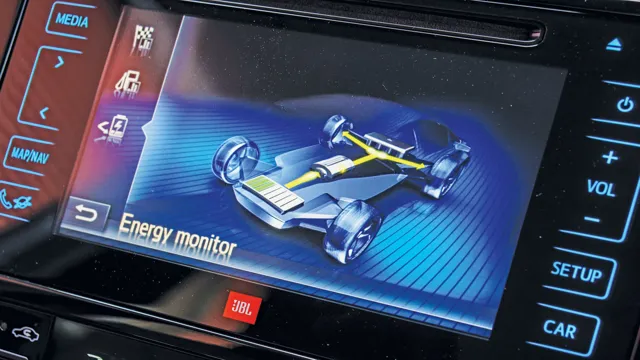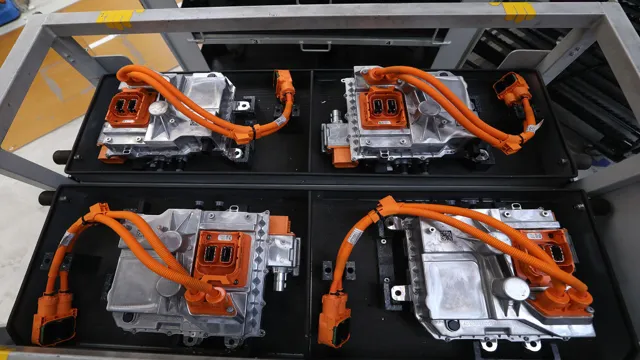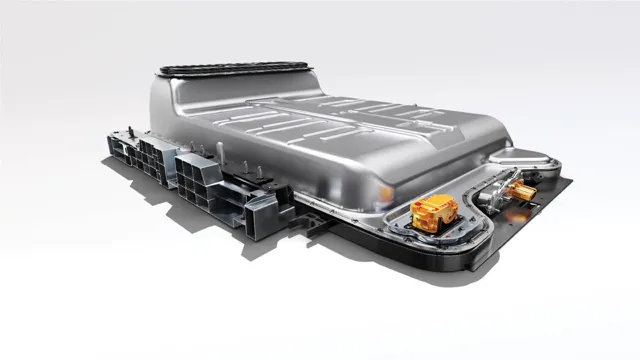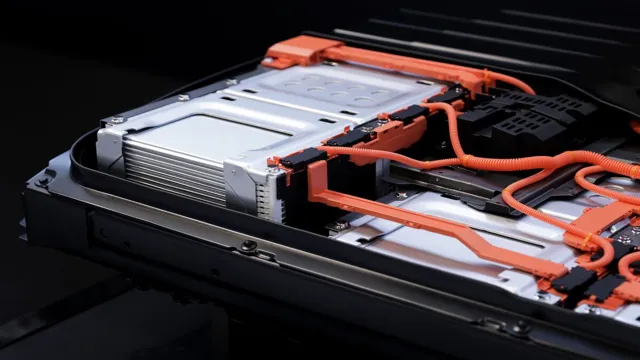Reviving Your Range: A Deep Dive into Battery Life for Electric Cars
Electric cars have come a long way in recent years. In fact, they’re more popular than ever, thanks in no small part to advancements in technology that allow them to travel further than ever before. However, one of the biggest concerns when it comes to electric cars is battery life.
After all, if an electric car can’t travel far on a single charge, it’s not going to be a practical choice for most drivers. So, how long can electric car batteries last, and what factors affect their lifespan? Let’s take a closer look at battery life for electric cars and explore some of the key things you need to know as a driver.
Current State of Battery Technology
Battery technology has come a long way in recent years, but the current state of battery life for electric cars is still a point of concern for many potential buyers. While some electric vehicles (EVs) now have ranges that can compete with their gas-powered counterparts, many still fall short. The good news is that as technology continues to evolve, it’s likely that battery ranges will continue to improve.
In the meantime, there are a few things manufacturers are doing to help ease range anxiety. Some EVs come equipped with regenerative braking, which helps to recharge the battery as the car decelerates. Others offer fast-charging capabilities, allowing drivers to quickly top off their battery during a longer trip.
Despite these innovations, it’s clear that battery life remains a key concern for many EV buyers. As more research is conducted and new technologies are developed, there’s reason to believe that this issue will eventually be resolved. Until then, it’s important for those considering an EV to carefully consider their needs and the capabilities of available models before making a purchase decision.
Improvement in Batteries over the Years
The current state of battery technology is a far cry from what it was just a few years ago. There has been a significant improvement in battery technology in recent years, with advancements in lithium-ion batteries leading the way. Lithium-ion batteries have revolutionized the way we use portable electronics, and they continue to improve.
They offer a higher energy density, longer lifespan, and faster charging times than previous battery technologies. But the improvements don’t stop there. Scientists and researchers are continually working on developing new battery technologies that are more efficient and environmentally friendly.
For example, solid-state batteries are being developed that could potentially offer even higher energy densities and safer operation than lithium-ion batteries. The continued evolution of battery technology is crucial for the future of electric vehicles and renewable energy storage. We can expect to see even more innovations in this field in the years to come, making portable electronics more efficient and our energy systems more sustainable.

Capacity vs Range Trade-off
One of the biggest challenges in battery technology is the trade-off between capacity and range. While increasing battery capacity can increase the range of electric vehicles, it also means heavier and bulkier batteries. On the other hand, reducing battery capacity may lead to lighter and more compact batteries, but at the cost of range.
This trade-off has made it challenging to produce an electric vehicle with both long range and a reasonable weight. However, with advancements in battery technology, researchers are working to develop batteries that can increase both range and capacity without compromising on weight. The key to achieving this lies in finding a new type of battery chemistry that can provide higher energy densities while remaining cost-effective.
Nonetheless, designing these innovative battery cells is no easy task and will take time until they can be made widely available for consumer use.
Factors Affecting Battery Life
Battery life is one of the most important factors to consider when it comes to electric cars. While electric vehicles have come a long way in terms of efficiency, the battery life still varies depending on several factors. One of the major factors is the temperature.
Extreme hot or cold temperatures can have a significant impact on battery life. For instance, high temperatures can cause the battery to degrade faster, while low temperatures can reduce the battery’s efficiency and capacity. Another factor is the driving style.
Aggressive driving and heavy acceleration can drain your battery much faster than a more conservative driving style. Additionally, the weight of the car and its payload can also impact battery life. More weight requires more energy to accelerate and maintain speed, which can result in shorter battery life.
Proper maintenance and charging habits can also greatly affect the longevity of your electric car’s battery. By taking proper care of the battery, you can maximize its lifespan and enjoy longer drives between charges.
Driving Habits and Style
When it comes to your car’s battery life, your driving habits and style play a huge role in determining how long it will last. For example, if you frequently take short trips or stop-and-go in heavy traffic, your battery will be working harder to start the engine repeatedly, which can shorten its lifespan. Additionally, aggressive acceleration and braking can also put unnecessary strain on your battery and cause it to wear out faster.
On the other hand, if you drive in a more relaxed manner and avoid excessive idling or harsh driving, you can help your battery last longer. It’s important to keep these habits in mind if you want to get the most out of your car’s battery and avoid unexpected breakdowns on the road.
Temperature and Climate
Temperature and Climate Temperature and climate are important factors that affect the life of batteries. Extreme temperatures can damage batteries and reduce their overall life. High temperatures can cause excessive loss of electrolyte, which can result in reduced capacity and even permanent damage to the battery.
On the other hand, low temperatures can increase battery internal resistance, which can reduce its ability to provide sufficient power. Moreover, high levels of humidity can cause corrosion to the battery terminals, which can ultimately lead to battery failure. Therefore, it is advisable to store batteries in a cool and dry place, away from direct sunlight, to ensure they retain their efficiency and longevity.
Regular maintenance and monitoring of the temperature and climate conditions of the battery environment can also help to prolong the life of a battery.
Charging Habits and Infrastructure
One of the biggest factors affecting battery life is your charging habits and the infrastructure available around you. For example, harsh weather conditions like extreme heat or cold can impact the battery’s health, even if you’re not actively using the vehicle. Additionally, charging patterns can influence the battery life significantly.
If you tend to charge your vehicle up to 100% regularly, this can lead to a reduction in the battery’s overall lifespan. Charging to 80% capacity is often recommended as this helps manage voltage and temperature levels. It’s also worth noting that the infrastructure available to you can have a significant impact on your charging habits.
Different charging stations have different output levels, so it’s essential to understand which local stations are providing the best charging speeds and efficiencies. By monitoring and making adjustments to your charging habits, you can help extend the life of your battery and get the most out of your electric vehicle.
Maximizing Battery Life
Maximizing battery life is a crucial factor when it comes to electric cars. Of course, the exact time your car’s battery lasts depends on several factors, from the car’s make and model to the weather conditions and driving habits. However, there are some things you can do to conserve your battery.
The first thing to keep in mind is to avoid letting your battery drain completely. Keeping your car’s battery charged between 20%-80% maximizes its life. Additionally, try and be mindful of unnecessary energy-draining activities such as leaving the car’s lights on when not in use and avoiding rapid acceleration.
You should also consider your driving habits and style. If you drive in a manner that requires a lot of acceleration and braking, you’ll force your car’s battery to work harder and thus reduce its lifespan. Therefore, it’s essential to drive more steadily, taking a less aggressive approach.
In summary, by being considerate of your driving choices and taking care of the battery, you can enjoy a longer lifespan for the battery of your electric car.
Tips for Prolonging Battery Life
Maximizing battery life can save you a lot of frustration and money in the long run. One way to accomplish this is by tweaking your device’s settings to reduce power consumption. For example, turn off Wi-Fi and Bluetooth when you’re not using them.
Reduce screen brightness and set the auto-lock to a shorter time. Another way to save your battery is to avoid extreme temperatures. High temps can cause your battery to lose capacity quicker.
Similarly, charging your device to 100% and letting it stay at that level for an extended period can degrade your battery’s life over time. It’s also useful to preserve battery life by minimizing app usage and turning off notifications. Every app that runs uses power, and notifications – especially those with sounds and vibrations – can quickly drain your battery.
If you’re in a situation where you need to keep your device alive, consider turning on airplane mode. Killing connectivity and turning off non-essential features can undoubtedly help maximize your battery life when you need it most. So start incorporating these battery-saving tips today and extend the life of your mobile devices.
Battery Maintenance and Care
Maximizing Battery Life If you want your battery to last longer, you need to give it some TLC. Proper maintenance and care can significantly extend the life of your battery, saving you time and money in the long run. One of the best things you can do is to keep your battery cool.
High temperatures can cause your battery to lose capacity and reduce its overall lifespan. So, try to avoid exposing your device to direct sunlight or overheating it. It’s also important to keep your battery charged within the recommended range and avoid overcharging it.
Overcharging can cause your battery to lose capacity faster, so disconnect your device once it reaches full charge. Lastly, avoid discharging your battery completely and frequently charging it to 100%. Doing so can significantly decrease your battery’s life.
Taking care of your battery might seem like a hassle, but it’s worth it if you want it to last longer. By doing so, you can keep your devices running smoothly for years to come.
Future of Battery Technology
The future of battery technology is exciting, as engineers and scientists are working hard to develop batteries with longer lives for electric cars. This is an important area of research, as battery life is a major concern for consumers who are considering buying electric vehicles. Improving battery technology will not only increase the range of electric cars but also make them more cost-effective.
Currently, batteries use lithium-ion technology, which is limited in terms of the amount of power it can store. However, researchers are exploring alternative materials, such as silicon, that can be used to improve battery life. In addition, battery management systems have also improved, which can help to extend battery life through better regulation of charge and discharge cycles.
With continued research and development, it’s possible that electric cars will soon be able to match or surpass the range of traditional gasoline-powered vehicles.
Conclusion
In conclusion, the battery life for electric cars is literally the lifeline for these eco-friendly vehicles. Without a reliable and efficient battery, electric cars wouldn’t be able to keep up with their gas-powered counterparts. But fear not, advancements in battery technology continue to provide hope for longer life and quicker charging times.
So, charge up, hit the road, and let’s keep the world moving towards a more sustainable future! #ChargeOn”
FAQs
What is the average battery life for electric cars?
The average battery life for electric cars is approximately 8 to 10 years.
How does cold weather affect the battery life of an electric car?
Cold weather can significantly affect the battery life of an electric car, reducing its range by up to 40%.
Is it possible to replace the battery of an electric car?
Yes, it is possible to replace the battery of an electric car. However, the cost of replacing a battery can be quite high.
How long does it take to charge an electric car battery?
The time it takes to charge an electric car battery varies depending on the charging method and the size of the battery. On average, a full charge can take anywhere from 30 minutes to 12 hours.





